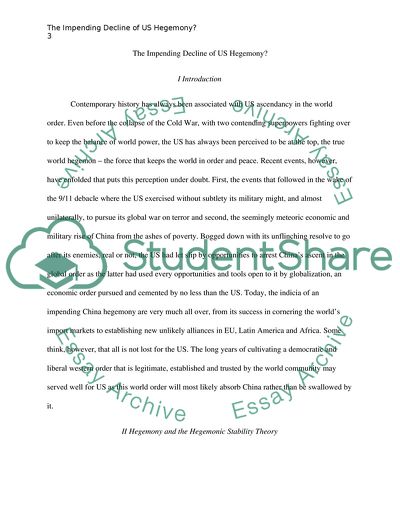Cite this document
(The US Fate in World Politics: The Impending Decline of US Hegemony Essay, n.d.)
The US Fate in World Politics: The Impending Decline of US Hegemony Essay. Retrieved from https://studentshare.org/politics/1735304-us-hegemony-is-set-to-decline-over-the-next-two-decadesdiscuss
The US Fate in World Politics: The Impending Decline of US Hegemony Essay. Retrieved from https://studentshare.org/politics/1735304-us-hegemony-is-set-to-decline-over-the-next-two-decadesdiscuss
(The US Fate in World Politics: The Impending Decline of US Hegemony Essay)
The US Fate in World Politics: The Impending Decline of US Hegemony Essay. https://studentshare.org/politics/1735304-us-hegemony-is-set-to-decline-over-the-next-two-decadesdiscuss.
The US Fate in World Politics: The Impending Decline of US Hegemony Essay. https://studentshare.org/politics/1735304-us-hegemony-is-set-to-decline-over-the-next-two-decadesdiscuss.
“The US Fate in World Politics: The Impending Decline of US Hegemony Essay”, n.d. https://studentshare.org/politics/1735304-us-hegemony-is-set-to-decline-over-the-next-two-decadesdiscuss.


